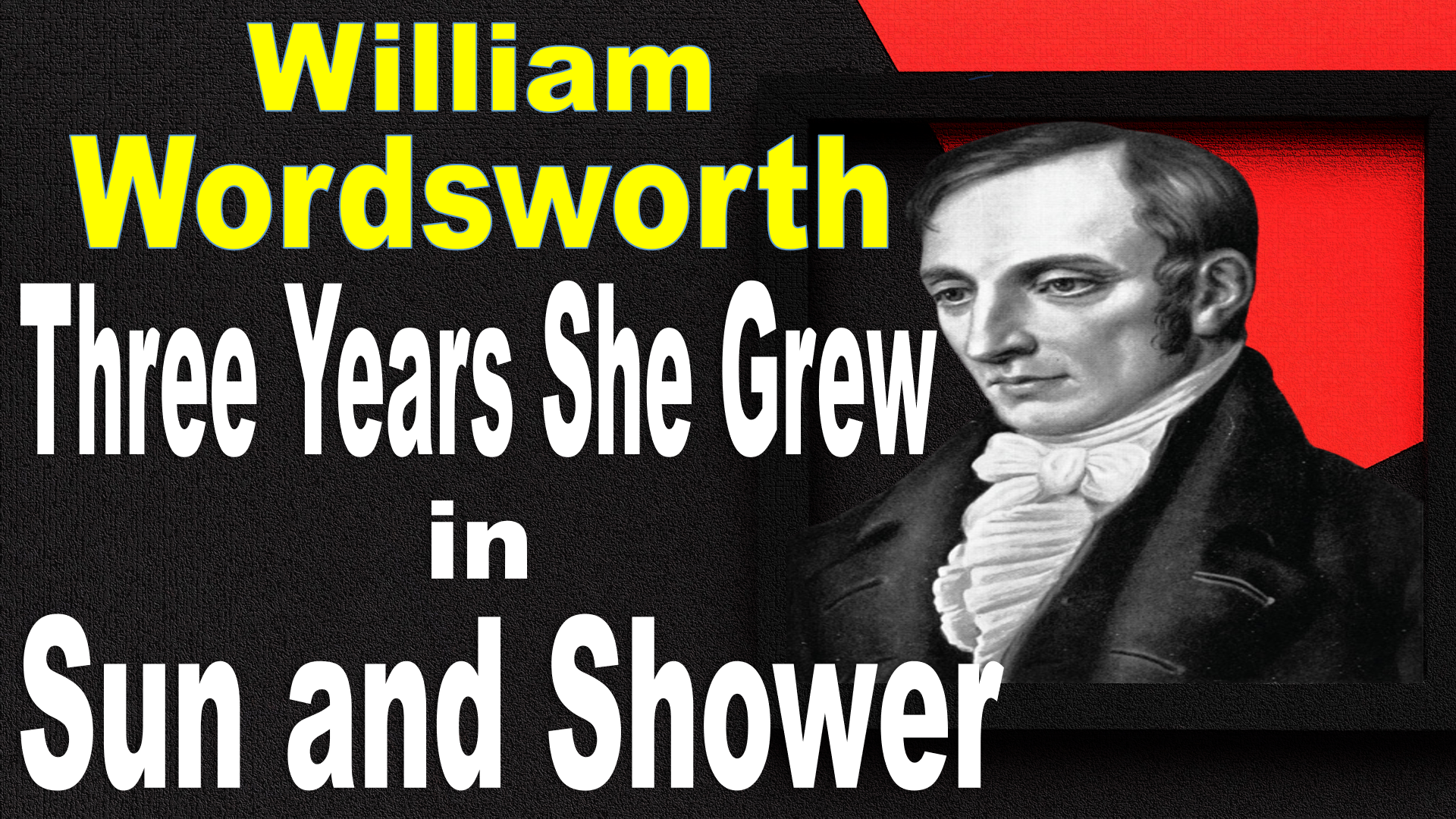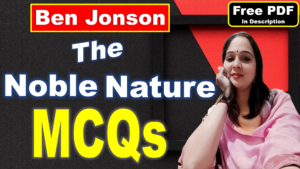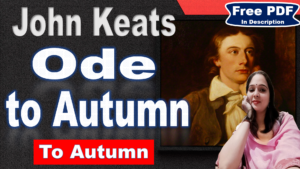Three Years She Grew Question and Answer
Very Short Answer Questions
Who is the author of the poem “Three Years She Grew”?
William Wordsworth.
What collection is “Three Years She Grew” part of?
Lyrical Ballads.
In what year was “Three Years She Grew” published?
1800.
Who is the central character in the poem?
Lucy.
What does Nature plan to do with Lucy?
Shape her into an ideal lady.
What does Nature compare Lucy to?
A lovelier flower.
How long does Lucy grow in the poem before Nature claims her?
Three years.
What does Nature promise to give Lucy?
Both law and impulse.
How is Lucy described in relation to a fawn?
Sportive and playful like a fawn.
What natural elements will influence Lucy’s growth?
Clouds, storms, stars, and rivulets.
Where does Nature say Lucy will live?
In a happy dell.
What qualities does Nature say Lucy will inherit from “mute insensate things”?
Silence and calm.
How does Nature plan to shape Lucy’s character?
Through silent sympathy.
What will “vital feelings of delight” do for Lucy?
Rear her to stately height.
How does the poem describe Lucy’s physical growth?
Her virgin bosom will swell.
What is the final outcome for Lucy in the poem?
She dies young.
What is the speaker left with after Lucy’s death?
The memory of her and the quiet scene.
What does the speaker say Lucy left behind?
A heath and a calm, quiet scene.
How does the speaker feel about Lucy’s death?
Sorrowful and reflective.
What is the rhyme scheme of the poem?
AABCCB.
What does the poem suggest about Nature’s role in Lucy’s life?
Nature nurtures and shapes her growth.
What literary device is frequently used in the poem to describe Nature?
Personification.
What theme is highlighted by Lucy’s premature death?
The transience of life.
How does Nature influence Lucy’s inner character?
Through grace, beauty, and tranquility.
What movement does this poem belong to?
The Romantic Movement.
Short Answer Questions
How does Nature personify itself in the poem?
In “Three Years She Grew,” Nature is personified as a nurturing, guiding force that claims Lucy as its own. Nature speaks as a caregiver, promising to shape Lucy into a perfect being by influencing her character and growth. Nature plays a dual role, acting as both law and impulse, guiding Lucy’s actions while allowing her freedom.
What is the significance of Lucy being compared to a “lovelier flower”?
The comparison of Lucy to a “lovelier flower” symbolizes her innocence, beauty, and purity. It reflects the natural growth she undergoes under Nature’s care. Just as a flower blossoms under the right conditions, Lucy is nurtured and shaped by Nature’s elements, emphasizing her close connection with the natural world.
How does Nature describe Lucy’s character in the poem?
Nature describes Lucy as both sportive and serene. She will be playful like a fawn, full of life and energy, but will also embody calmness, silence, and grace. Nature balances Lucy’s lively spirit with tranquility, shaping her character through her connection with various natural elements, such as clouds, storms, and stars.
What role do natural elements play in shaping Lucy?
Natural elements like clouds, storms, stars, and rivers play a crucial role in Lucy’s growth. These elements symbolize different aspects of her character, from grace and beauty to strength and serenity. Nature’s influence is subtle and silent, molding Lucy through a harmonious blend of vitality and calmness, creating a balanced, ideal figure.
How is the theme of transience explored in the poem?
The theme of transience is explored through Lucy’s untimely death. Despite Nature’s nurturing and care, Lucy’s life is short, symbolizing the fleeting nature of human existence. The poem reflects on the inevitability of death and loss, highlighting the contrast between the permanence of nature and the temporary beauty of life.
What is the significance of the final stanza?
In the final stanza, the speaker reflects on Lucy’s death, emphasizing the suddenness of her passing with the line, “How soon my Lucy’s race was run!” The speaker is left with only memories of Lucy and the peaceful, unchanged landscape she inhabited. This emphasizes the idea that while life is fleeting, nature endures, providing a sense of continuity amidst loss.
How does Wordsworth use contrast in the poem?
Wordsworth uses contrast to highlight the balance between different aspects of Lucy’s character. She is described as both sportive and calm, wild like a fawn yet serene like the quiet of nature. The contrast between life and death is also emphasized, as Lucy’s vibrant, joyful life is abruptly ended, leaving only the stillness of the landscape behind.
What is the speaker’s emotional response to Lucy’s death?
The speaker expresses deep sorrow and a sense of loss following Lucy’s death. He mourns the end of her short life, reflecting on the calm and quiet landscape she left behind. While he is left with only memories, the natural world that shaped her continues, underscoring the theme of transience and the permanence of nature.
How does the poem reflect the Romantic ideals of nature and emotion?
The poem reflects Romantic ideals through its emphasis on the powerful connection between nature and human life. Nature is portrayed as a guiding and nurturing force, shaping Lucy’s emotional and physical development. The poem also explores deep emotions, such as joy, vitality, and loss, which are central to Romantic literature’s focus on individual experience and emotional depth.
What message does the poem convey about life and death?
The poem conveys the message that life is fragile and fleeting, no matter how beautiful or nurtured it may be. Despite Nature’s care, Lucy’s life is short, highlighting the inevitability of death. The poem also suggests that while life passes, nature remains constant, offering solace and continuity through its enduring presence.










